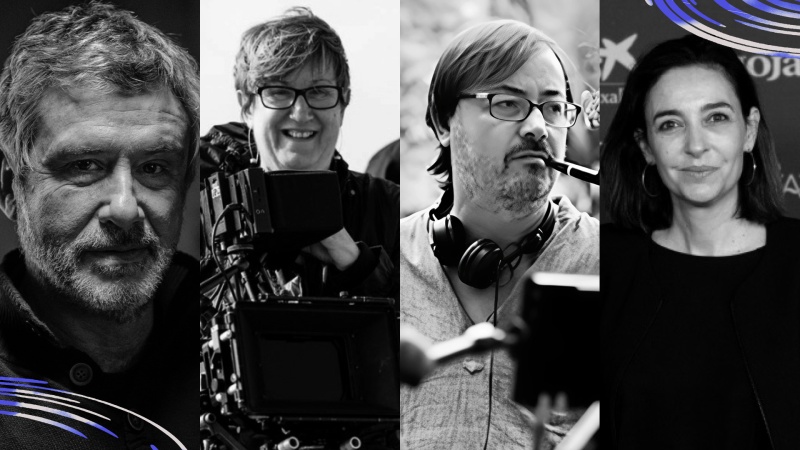Direction-production role


This session will address the important roles of film directors and producers in contemporary cinema. Directors and producers take risks in all aspects of a project, safeguarding creative independence while balancing artistic vision with resource management.
The discussion will focus on the tensions and synergies between the creative and industrial sides of filmmaking and the importance of this dual role in creating major international independent films.
The panelists are Helena Taberna, Paula Palacios, and Manuel Martín Cuenca, three filmmakers who have developed their careers by combining directing and producing from different perspectives. Javier Balaguer will moderate the conversation.
(Within the "1st ACCIÓN Meeting of Film Directors from Spain" Conference).
He made his directorial debut in 2001 with Sólo mía, starring Sergi López and Paz Vega, nominated for four Goya Awards including Best New Director. He later directed Escuela de seducción (2004) and the documentary Del fondo de la noche (2008), awarded at international festivals such as Philadelphia.
His documentaries include Furusiyya, a Shared Heritage (2012), on the history of horses for the United Arab Emirates, and Cervantes: The Search (2016), which won numerous international prizes.
In short films, he has directed Domótica (2019), Hacia montañas azules and Instantáneas (2020), both awarded in festivals in Spain, Russia, and France, as well as Alba (2021), honored at the Desafío Buñuel Festival, and El show (2024). In 2022, he co-directed the feature documentary Martí, patria, agonía y deber.
Helena Taberna, director, screenwriter, and producer, began her career in the mid-1990s and has since directed seven short films and seven features. Her filmography includes Yoyes (2000), on the Basque conflict; Extranjeras (2003), on migration; La buena nueva (2008), on the Spanish Civil War; Nagore (2010), on gender violence; Acantilado (2016), about sects; and Varados (2019), on the situation of refugees, which opened the Zinemira section at the 67th San Sebastián Film Festival.
Her socially engaged cinema has had a strong impact in theatres, universities, and international festivals, where her work has been widely awarded and featured in numerous retrospectives.
In 2025 she premiered her seventh feature, Nosotros, a love and heartbreak story selected for the Made in Spain section of the San Sebastián Film Festival, the Spanish Film Festival in Manila, and the São Paulo International Film Festival. Following its theatrical release, the film earned her the Silver Film Festival award in Bilbao and the 2025 annual prize of the Human Rights Film Festival in San Sebastián.
He is one of the most prestigious and acclaimed directors in contemporary cinema. After several short films and documentaries, he made his fiction debut with The Weakness of the Bolshevik (two Goya Award nominations), followed by Hard Times, Half of Oscar, Cannibal (eight Goya nominations), The Author (nine nominations, two Goya Awards, and the FIPRESCI Grand Prize at the Toronto Film Festival), and The Daughter (two Goya nominations). His films have been showcased at numerous international festivals.
Paula Palacios is a committed filmmaker whose work often addresses social realities. She has written, directed, and produced for ARTE, Aljazeera, Public Sénat, France 3, and RTVE.
In 2023 she received the IDA / Netflix Award for Best Emerging Global Director for her second feature, Mi hermano Ali. Premiered in the Official Time of History Section at SEMINCI, the film won the Rizoma Award for Best National Film and earned nominations for the 2024 Forqué Awards and the 2025 Goya Awards.
Her first feature, Cartas mojadas (2020), premiered in the Official Section of the Málaga Film Festival, where it won the Silver Biznaga-Public Award, and was nominated for the Goya, Forqué, and Platino Awards.
In 2022 she directed and produced Aljazeera’s original series The World Cup Dream. She is currently developing her first fiction features: La prima mayor (A Contracorriente Films) and Amor de Dios, based on an original idea by Carlos Saura and developed through the Spanish Film Academy’s Residencias program.



